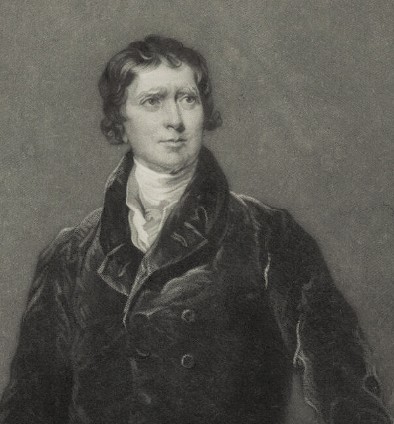Emerging consensus: Scholars on three continents defend Henry Dundas

SCHOLARLY COMMENTARY ON HENRY DUNDAS
(Updated 26 October 2023)
Professor Emeritus Sir Thomas Devine, University of Edinburgh:
Written submission to Toronto City Council regarding research on Henry Dundas by city staff:
I can assure the Committee that the current academic consensus in the UK is that since this research was carried out and published Dundas has been exonerated by scholars in the field as the prime mover on delay. Instead, explanations now focus on a range of military, political and economic factors which rendered delay in abolition inevitable whether Dundas was involved in the process or not. For the sake of the international reputation of your great city you need to be made aware of these new findings and judge them for yourselves before coming to any final decisions on these matters.[1][2]
Comment in The Herald Scotland:
“…even if Dundas had never existed as an individual or high-ranking politician,” the slave trade would have continued through the 1790s because “forces political, economic and military were so potent that there was no way a British government would want to get abolition over the line.”[3]
See also, The Times Scotland: “Henry Dundas was playing long game to abolish slavery, historian suggests.”[4]
Professor Angela McCarthy, University of Otago, scholar of Scottish and British history:
Submission to Toronto City Council:
My view, as an expert in modern Scottish history and its diaspora, is that the scholarship on Henry Dundas, to date, is insufficient to form a basis on which to conclude that his actions prolonged Britain’s slave trade. I understand that much of the City’s current steer on renaming Dundas Street is a result of input from Dr Stephen Mullen. However, Dr Mullen’s efforts cannot be considered authoritative, or even reliable, for the reasons I outline in my article ‘Bad History: The Controversy over Henry Dundas and the Historiography of the Abolition of the Slave Trade’ which appears in the peer reviewed journal Scottish Affairs, 31:2 (2022), pp. 133–153.[5]
Regarding the controversial plaque on the Melville Monument:
Edinburgh City Council have the urgent moral duty to remove it. Otherwise, the city faces the grave charge and international opprobrium of falsifying history on a public monument.[6]
Professor McCarthy published a third peer-reviewed article in August 2023, in which she analyses previously unexamined archival evidence that corroborates the view that Henry Dundas was an abolitionist.
In her third article on Henry Dundas in Scottish Affairs [1], Professor McCarthy describes documents overlooked by other historians that exonerate Henry Dundas from accusations that he delayed abolition. These documents show that:
a) leading abolitionists supported Dundas’s vision for gradual abolition and wanted to help him,
b) for at least two years, slave owners opposed Dundas’s plan for gradual abolition, and
c) slave owners viewed Henry Dundas’s plan for gradual abolition and William Wilberforce’s plan for immediate abolition as being equally threatening to their slave-based holdings.
Commenting on Prof. McCarthy’s most recent article, Professor Emeritus Sir Tom Devine, Scotland’s most eminent historian, said: “Professor McCarthy has emasculated the bogus accusations against Henry Dundas as the ‘Great Delayer.’” [2]
[1] Angela McCarthy, “Henry Dundas and Abolition of the British Slave Trade: Further Evidence,” Scottish Affairs, August 2023, vol. 32, №3 : pp. 334–346. See also: Angela McCarthy, “Bad History: The Controversy over Henry Dundas and the Historiography of the Abolition of the Slave Trade,” Scottish Affairs, Vol 31, №2, Available online Apr 2022: “historians have the right to interpret facts differently but not to knowingly misrepresent them.”
[2] https://www.thetimes.co.uk/article/dundas-slavery-row-reignited-by-academic-zgsm3p3c5
Professor Emeritus Nick Rogers, a scholar of British history at York University
Submission to Toronto City Council:
Dundas tried to strike a middle ground between the abolition idealists and the slave traders; tilted towards the abolitionists in that abolition was recognized as a principle to be adopted and that slavery should come soon after. It is quite erroneous to suggest that Dundas was a rampant racist by the standards of the day. As Lord Advocate, he had played a major part in banning of slavery in Scotland [Knight v Wedderburn, 1778]; this was a more capacious ban that the better-known Somerset case [1772] in England. In 1792, Dundas served notice on the slave merchants and planters that their time was almost up.[8]
Op-ed, as yet unpublished:
The decision to erase the name of Dundas from the streets, squares and subway of Toronto is disappointing and based on erroneous historical evidence.
[…I]t is incorrect to scapegoat Dundas for the half a million Africans who were sent into slavery until 1807. Such an interpretation is simple, reductive and contextless.[7]
Professor Joseph Martin, retired, scholar of Canadian history at the University of Toronto:
Op-Ed in the Financial Post:
Martin Luther King said the arc of the moral universe bends toward justice; he didn’t say it takes a right turn toward justice — because it seldom does. History needs to understand the difficulties faced by reformers who must confront political and social realities as they persist toward their ends, albeit, in the terms of Dundas’ amendment, gradually. Given our uncertainty surrounding what went on 230 years ago and the humility and respect we should always have for our forebears, who faced challenges easily the equal of our own, the status quo for Dundas St. has a lot to recommend itself.”[9]
Professor Patrice Dutil, Toronto Metropolitan University:
Article in the Dorchester Review on the City of Toronto’s statement of facts:
The potted history does not give any overview of Dundas’s life and times. Instead it focuses entirely on one position he took at one moment in time, based on select and biased readings, presented without context, and egregiously illogical.[10]
… That the 1792 motion had absolutely no hope of passing has been acknowledged by the most severe critics. Even Dr. Stephen Mullen, the historian most relied upon by the City of Toronto staff, has admitted that the “1792 bill had no prospect of passing the Lords.” The hope survives only in the heart of city staff.
… The resolution of 1792 showed Dundas’s courage in a hostile political environment. He … knew that Scottish merchants were disproportionately profiting from the trade and that it would take time to persuade them that there was a more enlightened and perhaps profitable way to run their affairs without slaves.
Professor Ronald Stagg, a Canadian historian at Toronto Metropolitan University:
Submission to Toronto City Council:
The question for us all is, do we want a city built on myth, or a city based on reality? Do we want to strip the city of its character in order to satisfy misinformed beliefs? To simply give in the uninformed opinion, or to consider only part of the evidence, does a disservice to the people of this great city, and to our heritage.[11]
Letter:
In a situation where a decision could cost the taxpayers of Toronto, and the businesses located on Dundas Street, millions of dollars, I believe it is incumbent upon Council to revisit the renaming issue, with a full range of evidence to consider, even if just in a summary form. I note that Mississauga City Council, which had the Dundas material to consider, came to an opposite conclusion.” [12]
Professor Jonathan Hearn, Political and Historical Sociologist, University of Edinburgh
Article in The Spectator:
There is plenty of evidence to suggest that Dundas’s gradualist approach to abolition — however unsatisfactory it may seem to us in the present day — was the only approach which would be politically successful at the time, and as a skilled political operator, Dundas was very aware of this. Ironically, it was the abolitionist revisions to his bill that led to it being killed it and delayed any progress to abolition.”[13]
Professor Guy Rowlands, Historian of the Modern period, University of St. Andrews:
Article in History Reclaimed:
As we examine Dundas, empire and slavery we need to bear his pre-1792 track record firmly in mind, as even Mullen’s recent work does not do. We should not be judging Dundas on the basis of a couple of letters, a few parliamentary manoeuvres, the views of often-deluded and self-interested West Indies lobbyists, and one intractable situation he tried to unjam.
… So, what did Henry Dundas stand for? In matters of religion — a key concern of the era — Dundas sought to break the bigoted confessionalism of Scotland and Ireland: he failed in his efforts to ease discrimination of Catholics and Episcopalians at the end of the 1770s, but he did get it through for Scotland by 1792–93, even if he was defeated in his efforts to do the same for Irish Catholics, for whom he had deep sympathy to the point of supporting Catholic emancipation. He also eased the severe post-’45 restrictions on highland dress and on proscribed Jacobite families in the early 1780s. Furthermore, Dundas was no supporter of the clearances, and in the 1790s was concerned just as much with keeping a lid on populist conservative disorder as on squelching homegrown revolutionaries.”
… On judicial and political reform, on religion and on the slave trade, Dundas supported change but was scarred by witnessing or personally feeling repeated defeats at the hands of unenlightened, diehard, change-blocking, vested interests who needed to be persuaded to give way over time. This obduracy came too often from within the ranks of the royal family.”
… It is ironic that the hardline abolitionists, Wilberforce and his ilk, inspired a very different 19th-century sense of empire: a view that heathen (and yes, slaving) nations elsewhere in the world required “civilising” through a moral crusade and, if necessary, rule by superior Britons. Dundas, however, did not think this should be British policy. Who, here, is the real progressive?[14]
— — — — — — — — — — — — — — — — — — -
For more information on Henry Dundas, see our research paper, Henry Dundas and Abolition: The Missing Pieces.
— — — — — — — — — — — — — — — — — — —
[1] Sir Tom is the author or editor of some 40 books, including Recovering Scotland’s Slavery Past: The Caribbean Connection, published by Edinburgh University Press. He has also written close to 100 articles on topics as varied as Caribbean slavery and Scotland, emigration, famine, identity, Scottish transatlantic commercial links, the economic history of Scotland, stability and protest in the 18th century, and the global impact of Scottish people.
[2] EX34.6 — A New Commemorative Framework for the City of Toronto’s Public Spaces
[3] Mackay, Neil, “Academics go head-to-head over Scotland’s ugly legacy of slavery.” The Herald, 31 January 2021, 34–35, 64.
[4] https://www.thetimes.co.uk/article/henry-dundas-was-playing-long-game-to-abolish-slavery-historian-suggests-wchzsrt6r
[5] EX34.6 — A New Commemorative Framework for the City of Toronto’s Public Spaces
[6] Bad History: The Controversy over Henry Dundas and the Historiography of the Abolition of the Slave Trade,”[6] Scottish Affairs 31.2 (2022): 133–153, Edinburgh University Press
[7]https://documentcloud.adobe.com/link/track?uri=urn:aaid:scds:US:83c9efbf-bfe8-3d39-b317-cab0ca8a5204
[8] EX34.6 — A New Commemorative Framework for the City of Toronto’s Public Spaces
[9] https://financialpost.com/opinion/joe-martin-let-dundas-street-remain-dundas-street
[10] https://www.dorchesterreview.ca/blogs/news/dundas-hoax
[12]https://documentcloud.adobe.com/link/track?uri=urn:aaid:scds:US:c84deba4-a376-323c-a81f-71bf85045af0
[11] Professor Ron Stagg, Toronto Metropolitan University: communicationfile-154915.pdf (toronto.ca)
[13] https://www.spectator.co.uk/article/what-edinburgh-s-slavery-review-gets-wrong
[14] https://historyreclaimed.co.uk/injustice-the-casting-of-blame-in-history-the-melville-monument-and-edinburghs-confrontation-with-its-imperial-past/
